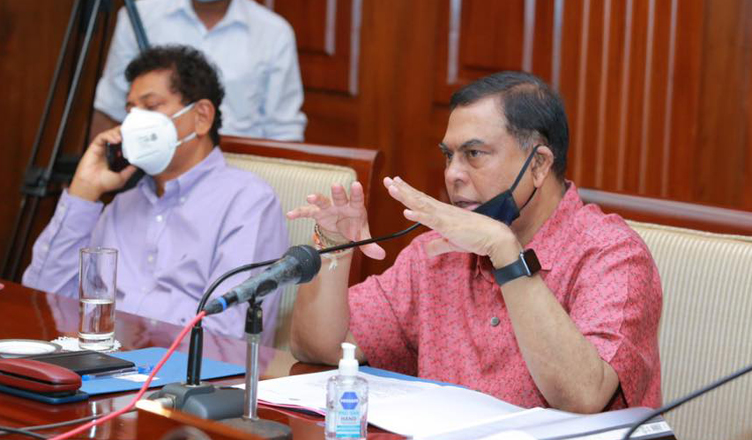(COLOMBO, LANKAPUVATH) – The Sri Lankan Government has decided to cultivate 2.4 million home gardens throughout the country under the National Home Gardening Program, encouraging local production to strengthen the country’s national economy.
Accordingly, under the National Home Gardening Program, 2.4 million home gardens will be directed to crop cultivation and animal husbandry, said Basil Rajapaksa, Head of the Presidential Task Force on Economic Revival and Poverty Alleviation.
He was speaking at a discussion held at Temple Trees yesterday (22) with government officials involved in the home gardening program.
The program aims to build an economically, socially and environmentally prosperous country by realizing the concept of a “productive citizen, a happy family”. It is planned to implement the National Cultivation Program during this Maha season, prioritizing the development of the home economy while implementing large scale development programs.
The identification of home gardens has already commenced through the Grama Niladharis, Samurdhi Officers, Agricultural Research Production Assistants, Economic Officers and Family Health Services Officers. These home gardens are supervised by five committees at the national, provincial, district, divisional and rural levels
All types of plants including vegetables, fruits, fruits, herbal plants used for porridge, spices, herbs, export crops, woody plants will be provided for selected home gardens under the program and priority is given to the most productive plants suitable for each area.
It also focuses on domestic poultry management, goat management, and facilitation of fish farming in freshwater tanks, estate reservoirs and backyard ponds, and the development of the domestic dairy industry.
The program also aims to prevent unskilled women from seeking employment in the Middle East and instead empower women to find solutions to social problems by building an economic environment in which they can contribute to the family economy.
Speaking further Mr. Basil Rajapaksa said protecting the environment should always be a priority.
“Let’s start with the home garden to protect the environment. To this end, we all need to pay attention to the implementation of the home gardening program. Protecting water sources while prioritizing eco-friendly, soil-conserving plants is also important. It is also important to pay attention to the cleanliness of the environment to avoid the use of plastics and to protect against diseases such as dengue. We start all these things in our own backyard. This requires the support of environmental agencies and organizations.”
“As this program progresses, it will be possible to contribute to the home economy by directing the surplus into the rural market after household consumption. When household products are released into the market, there is a control over the price of food items in the market. Selling village products in the village without intermediaries generates income. There is a good demand for non-toxic village products. This will enable manufacturers to export a large quantity of food items,” he elaborated.
Secretaries of relevant ministries and heads of departments and institutions participated in the discussion.




